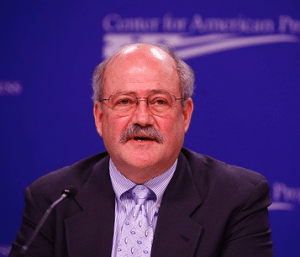Agribusiness could propel Ghana’s prosperity – Bever

Mr. James A. Bever, the Mission Director of the United States Agency for International Development’s (USAID) has said agribusiness could transform Ghana’s fortune in the future.
He said the USAID’s Feed the Future project, one of its interventions to spur sustainable and broadly shared economic growth, had shown tremendous success, especially in the northern regions of Ghana.
The project has helped small holder farmers, especially women, to improve production with an initial number 30 farmers growing to 35,000.
Interacting with journalists at the USAID’s office in Accra, Mr Bever, who is ending his two-year tour of duty in Ghana, said he was optimistic that the beneficiaries would grow to 100,000.
Mr Bever noted that in most cases, the farmers had quadrupled the production of their yearly produce, in mostly grains like rice, soya, and maize.
With the increased production, he said, it could feed the demand from the beer production industry, poultry feed production, the School Feeding Programme, local consumption and that of the World Food Programme.
“It is a sustainable model and we are extremely excited about it,” he said. “I think Ghana is in the path to an agricultural revolution that really can turn the northern part of the country to a bread basket and reduce imports.
“The north is where there is a real potential for quick improvement in grain production such as rice, white and yellow maize, and sorghum, which are marketable.
The USAID has so far provided about $45 million for the FtF project, which has three main elements: helping to preserve offshore fisheries along Ghana’s coastal areas, which has seen a steady decline recently; equipping small holder farmers (single headed households), especially women up north to increase their yield; and supporting big, commercial farmers, such as WEINCO.
The commercial farmers are to produce more using modern technology and larger scale commercial agricultural that would create more businesses in inputs, harvesting, packaging and other areas of the agricultural value chain.
“I think you’re gonna be seeing here, five or eight years from now, a different Ghana based on agribusiness,” he concluded.
On Energy, Mr Bever said he was very interested in this sector because his objective in first coming to Africa in the 1970s was to help develop power sources for Africa and under President Obama there was a deep abiding interest in this sector.
He declared: “In the 21st century, you have to have electricity. It’s good for business, for Africa’s business, its good for American business, so everybody wins.”
In line with this, the USAID is running the Power Africa Project; an initiative launched by President Barack Obama, in 2013, to increase the number of people with access to power in sub-Saharan Africa.
America is working with African governments, the private sector, and other partners in the Region to add more than 30,000 megawatts (MW) of cleaner, more efficient electricity generation capacity as well as to increase electricity access.
Mr. Bever stated that the current ‘Dumsor’ power situation in Ghana was very challenging at every level, which made the USAID’s work with Power Africa even more important.
In Ghana, the USAID through Power Africa provides legal advisor services with several Transaction Advisors working hand-in-glove with the Ghana National Gas Company, the Power Ministry and other stakeholders to help with the necessary legal agreements.
“These are private companies who need contracts, guarantees, legal cover and who have invested huge amounts of capital,” he explained.
According to Bever, it was such elements which had been catalytic to the gas finally flowing to Atuabo and then to Takoradi.
Mr. Bever also gave updates on the USAID’s work so far on Education, Health and Governance, saying Ghana had made significant progress in these areas and pledged that Agency’s commitment to continue to work closely with Ghana in these key areas in the future.
He also said the US’s aid to Ghana, which comes in the form of grants, should not be seen as handouts but as an investment in Ghana’s development with expectations of a good return on investment
“These include healthier Ghanaians, more jobs, better educated Ghanaian citizens, which would in turn benefit the American people as we interact and move around in the global world,” he said.
“We are all stockholders in this venture”.
Source: GNA
